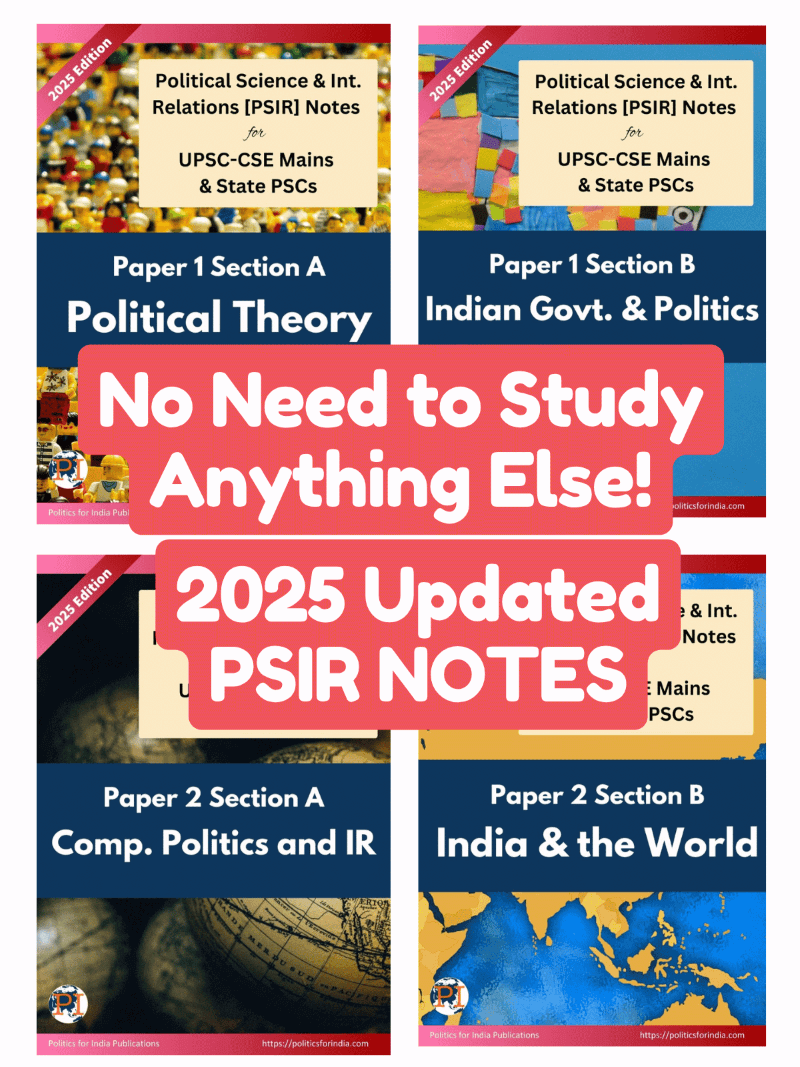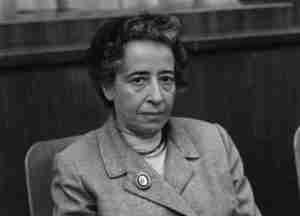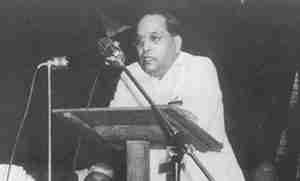1] Life of Aristotle
Along with Socrates and Plato, Aristotle (384-322 BCE) is one of the three most important Greek philosophers. Together, they lay the foundation of Western philosophy and political thought. Although known as the father of political science, Aristotle was a polymath who made significant contributions to various other fields including philosophy, science, ethics, and more.
Aristotle was born in 384 BCE in Stagira, a small town in Macedonia. His father was a physician, and Aristotle’s early education likely included training in medicine.
At the age of 17, Aristotle moved to Athens to study under the renowned philosopher Plato at The Academy. He spent approximately 20 years there, engaging in philosophical discourse and gaining a strong foundation in philosophy. Although Plato’s most brilliant student, Aristotle developed philosophical differences with his master.
In 348 BCE, Aristotle left Athens after the death of Plato. He returned to Macedonia and became a tutor to the young Alexander, who would later become Alexander the Great. He educated the prince in various subjects, including ethics, politics, and natural sciences.
After Alexander’s ascension to the throne, Aristotle returned to Athens and founded his own school called the Lyceum. With the death of Alexander in 323 BCE, the political atmosphere also changed and Aristotle had to flee from Athens in 322 BCE. Shortly afterwards he died at the age of 62. The ideas of Aristotle discussed in this chapter are largely based on his book ‘Politics’.
2] Plato and Aristotle
Aristotle was the student of Plato. However, there are certain differences between the ideas of Plato and Aristotle. The most important concern in Plato was to give the theory of an ideal state, Aristotle was more interested in finding out the best practicable form of government. While Plato is a perfectionist, Aristotle believes in the idea of golden mean.
While Plato was an other-worldly philosopher, Aristotle was more concerned about the world as it is, in front of us. Plato was a romantic, utopian and radical thinker who suggested extreme measures like communism. On the other hand, Aristotle is a pragmatic and conservative thinker, for whom, ‘we should not disregard the experience of the ages’, and ‘the rule of law is superior to the reason of philosopher king’.
It is also important to note that there are also similarities between Aristotelian and Platonic ideas. Both belonged to the Socratic tradition and were critiques of Sophists. Both believed that man is a social animal and state is natural. The state is superior to individual. Both scholars believed in natural inequalities.
3] Aristotle’s Theory of Immanent Form
Like Plato, the ‘theory of form’ creates a philosophical basis for all the political ideas of Aristotle. However, Aristotle’s description of ‘form’ is different from Plato’s.
For Aristotle, ‘form’ is not separated or independent from matter. The form is immanent (within) in matter. The form is not independent of the object, but rather part of it. Just as a ‘treeness’ is embedded, inherent, in any given tree.
Further, Aristotle gives the idea of ‘development’ in his theory of form. According to the theory of immanent form, things develop to their own perfection. And the function of theory is to explain this process.
For Aristotle, we cannot ignore the physical world, just considering it as the world of illusions. Further, since the form is understood through observation and experience, we do not require any special knowledge, we only require common sense.
For Plato, the real world is the world of ideas, and philosophy is the ultimate source of knowledge. Thus, Plato is called as the father of Political Philosophy
Aristotle, on the other hand, gives importance to the world of matter and focuses on observation rather than the abstract concept of reason. This denotes a more scientific approach and Aristotle is known as the father of Political Science. ‘Science’ denoting Aristotle’s practical, and systematic approach.
| Plato’s Theory of Form | Aristotle’s Theory of Form |
|---|---|
| Form is universal, ideal, and separate from particulars | The form is immanent (within) the matter, not separate from it |
| The knowledge of forms is accessed by reason only, it’s innate in us. | Knowledge of forms is gained through observation and experience |
| The world of forms is more real than material world | The material world is primary reality. Forms are part of the material world only. |
A] Aristotle on Happiness
For Aristotle, happiness is the end goal of humans. For Aristotle, happiness is linked to people’s capacity to behave according to their own reason, and bring it into practice. Aristotle does not define happiness in terms of the attainment of knowledge, the way Plato does. For him, what is needed, is knowledge as well as training. Mere reason is not sufficient, it should be accompanied by action. In the words of Aristotle,
“The moral virtues we do acquire by first exercising them. The same is true of the arts and crafts in general. The craftsman has to learn how to make things, but he learns in the process of making them. So, men become builders by building, harp players by playing the harp. By a similar process we become just by performing just actions, temperate by performing temperate actions, brave by performing brave actions.”
B] Aristotle on Golden Mean
Aristotle suggests that virtue is equidistance between extremes. For example, courage is the mean between cowardice and foolhardiness. Courage involves knowing when to fear and when not to. While cowards fear everything, foolhardiness is the opposite. Thus, courage is a virtue and is a golden mean between two extremes i.e., cowardice and foolhardiness.
Aristotle’s theory of form is also based on this idea of golden mean. Sophists rejected even the possibility of justice and suggested the acquisition of power to acquire material enjoyment. Plato, on the other hand, suggests an ascetic approach and gives his theory of idea, to create an ideal state. Aristotle is the golden mean for Sophist and Platonic ideas suggesting that form is immanent in matter, and by reason and action, one can achieve perfectness.
4] Aristotle’s Theory of State
Similar to Socrates and Plato, Aristotle believed that man is a social animal, and that state is a natural institution.
This is reflected in the following Aristotelian quotes.
“Man is by nature political (social) animal”
“State comes into existence for sake of life and continues for the sake of good life”
“State is highest of all associations”
“One who can live without state is either a beast or God, he cannot be a man”
“State is a union of family and religious”
For Aristotle, the primary function of the state is to assist in human happiness. Human beings, above all, are political animals and politics is the highest expression of human sociability. This is because it allows for the expression of reasoned action to a greater degree. Thus, the state is able to inculcate the virtue in its citizenry more than any other association.
“A state exists for the sake of a good life, and not for the sake of life only: if life only were the object, slaves and brute animals might form a state, but they cannot, for they have no share in happiness or in a life of free choice.” – Aristotle
Aristotle suggests that nature has not made man self-sufficient. For the maintenance and biological existence, a man needs to have a family. However, the family can fulfil only the basic, survival needs of man. Survival demands that in a family there is strict hierarchical relationship. The husband must rule like a monarch and the children must obey their parents, says Aristotle.
Further, since the family cannot fulfil all the needs of man, there is a creation of village. The village and the associated economic activity help the man to fulfil his basic needs of survival and to maintain biological existence. However, neither family nor village is capable of fulfilling all the needs of man. So, there is a creation of state. In the state, a man can exercise his ‘free choice’. There is freedom to speech and reason, and to participate in politics. Speech and reason are the pre-eminent virtues for Aristotle. Thus, state allows people to acquire virtue to a higher degree than any other subordinate community.
Every state is a community of some kind, and every community is established with a view to some good; for mankind always acts in order to obtain that which they think good. But, if all communities aim at some good, the state or political community, which is the highest of all, and which embraces all the rest, aims at a good in a greater degree than any other, and at the highest good. – Aristotle
Historically, Aristotle argues that the first associate was family, followed by village, which later evolved into State. However, according to the needs of man, the state comes first. Teleologically, the state is the final end towards which human life aims. Thus, the state is our end goal (telos), and other communities are subordinate to it. Thus, state is prior to individual.
5] Aristotle’s Theory of Citizenship
Aristotle sees citizenship as a duty. Duty towards the state to participate in state affairs, law-making and judicial activities. Execution of these duties, according to Aristotle allows man to access the highest virtue of his existence i.e., free choice, involving the exercise of speech and reason. Thus, along with reason, citizenship also requires leisure time for political participation and philosophical study.
Consequently, Aristotle has given the theory of limited citizenship. Only native-born, adult Greek males, belonging to the propertied class should be the citizens of state. He excludes women, children, old people and slaves based on the following arguments.
- Women – they are so much involved in family affairs that they do not have time.
- Children – they lack maturity. The reason in children is not developed.
- Slaves – they do not have reason.
- Old people – their physical condition remains uncertain.
However, Aristotle has also given different duties of citizens based on the type of constitution. More about different types, we’ll discuss later.
Assessment
Aristotle does not believe in natural equality. In excluding certain sections of society from citizenship, they are banned from political participation. Thus, not allowing them to attain happiness. Such a theory may not be desirable in modern democracies, based on the concept of equality.
However, Aristotle’s perspective of citizenship as a duty is certainly commendable. There is an emphasis on fundamental duties in modern democracies, without any emphasis on the duties of citizens.
6] Aristotle’s Theory of Slavery
In ancient Greece, there was an institution of slavery. There were 2 categories of slaves i.e. 1) slaves by nature and 2) slaves by law (prisoners of war). Aristotle suggested that slavery is natural as well as desirable. However, he talks only about the first types of slaves i.e., slaves by nature.
According to Aristotle, by nature, there is a distinction between slaves and masters. Those who are mentally strong and possess reason are meant to be masters. On the other hand, slaves are those in whom the reason is not fully developed and are physically strong.
Thus, nature has made the masters mentally strong and given them reason so that they can be involved in political participation and philosophical study. On the other hand, slaves are physically strong so they could perform the physical work, for a longer duration.
Master possesses two qualities: reason and courage. These are needed since masters are supposed to make decisions, as well as have the courage to stand by the consequences of the decisions are the masters (courage of conviction). Slaves do not have reason and courage. Courage is also needed because if we do not have courage, we will not be able to make decisions.
Further, since the slaves participate in physical labour, it allows the masters to have leisure time and participate in political activities, enabling them to enhance their virtues. The practice also helps slaves themselves since they’re un-capable to live on their own. In the company of a good master, the slave will at least have an opportunity to develop some virtues.
Aristotle also suggests that a master should take good care of his slaves. And if the slave develops the virtues of reason and courage in association with master, such a slave can be freed.
Assessment
Aristotle’s justification of slavery and his belief in natural inequality become the central points in his criticism. While slavery may be natural, and some men may be born with less reason than others, this does not justify their domination by others. As Socrates suggested, ‘what is should not define what ought to be’. While the ‘survival of the fittest’ may be the principle of nature, it need not guide human society.
In contemporary times, such a theory is unacceptable. Immanuel Kant has given the concept of human dignity. In his words, “Each man in an end in itself. No one ought to treat another person as a means to an end”. Every person possess dignity which should not be violated at any cost. The theory of slavery gives rise to oppressive doctrines such as ‘benevolent despotism’, of the ‘white man’s burden’.
7] Aristotle on Property
Aristotle rejects the idea of communism given by Plato. He suggests that the institution of property has its utility. Property is a source of stability as well as inspiration. Property is a virtue and also contributes to the productivity of society.
He evaluates three different types of systems based on ownership and use.
- Common ownership common use (communism) – It is neither good for the property nor society. Everyone’s property is no one’s responsibility. Common ownership is not productive as it is not enough motivating.
- Common ownership individual use – It is not logical and hence not practical. If ever found in practice, it will be very exploitative.
- Individual ownership common use – Aristotle considers this to be an example of his fundamental idea of “golden mean”.
Aristotle believes that a person should have moderate wealth. A person should also contribute to the well-being of others. After all, man is a social animal. Society plays an important role in the life of man, and he should contribute to the society. Thus, Aristotle’s idea of property comes near the Gandhian idea of ‘trusteeship’.
8] Aristotle’s Theory of Constitution
In Aristotelian terms, the constitution denotes a political system. An arrangement of political offices that determines who shall be allowed to rule. Based on 1) the number of rulers involved and 2) the quality of governance i.e. in the interest of people/against their interest, Aristotle suggested six types of constitutions:
| No. of rulers involved | In the interest of people (normal) | In the interest of rulers (corrupt) |
| One | Monarchy | Tyranny |
| Few | Aristocracy | Oligarchy |
| Many | Polity | Democracy |
A] Which is the Best Constitution?
In Aristotle’s classification of constitutions, the absolute best is monarchy, while the absolute worst is tyranny. However, in ‘Politics’ Aristotle’s focus is on the ‘best practicable’ form of constitution. Thus, he discards monarchy as simply theoretical and impossible to realize.
Oligarchy denotes the rule of a few rich in their own interest. Democracy, is a similarly corrupt system, by the many poor.
Aristocracy, Aristotle suggests is close to the ideal, but not always possible to attain. There are many practical obstacles like, the size of population, geography, social classes etc. These considerations show the pragmatic thinking of Aristotle. He is not suggesting a ‘one size – fit for all’ solution.
For Aristotle, although the best constitution is ‘monarchy’, or the rule of a philosopher king, it is not best practicable. It is simply theoretical and impossible to realize. On the other hand, the ‘polity’, indicating the rule of many ignorant poor is another extreme. Thus ‘aristocracy’, which signifies the rule of the middle class is the best practicable form of government. It is a golden mean between monarchy and polity. (The corrupt constitutions are not considered)
‘Polity’ according to Aristotle, avoids the extremes of the other two systems. e.g. Oligarchy is the rule of the few rich while democracy is rule of masses or many ignorant poor. Polity is the moderation. It is a rule of rich, but not extremely rich. It is rule of many rather than few, but not of too many.
The rule of middle class is always better according to Aristotle because rich and poor both are susceptible to crimes. One commits crime out of arrogance and the other commits crime out of ignorance. Rich will not trust poor, poor will not trust rich. Hence either of the rule will not be stable. However both will trust the middle class. Hence the rule of middle class is more stable.
He gives the example of many great law-givers like Solon, coming from the middle class. Middle class possess reason and since they are not very rich, they are not arrogant and thus the rule of middle class is the best practicable form of government.
B] Aristotle’s Methodology
While Plato’s theory of state is based on his imagination, Aristotle had studied various other models of state (constitutions), before arriving at his theory of constitution. He has given his theory after studying 158 constitutions. Plato’s theory is based on his imagination, whereas Aristotle’s analysis is based on the observations of the real constitutions, their analysis, comparison, classification etc. Hence his methodology can be called as more scientific.
The theory of Constitution is discussed by Aristotle in his book Politics. It is also the most important reason to give Aristotle the title of the father of political science. Political science begins and ends with the state. Aristotle’s ‘Politics’ deals with the topic of state in detail. It analyses different models of power-sharing, the issues associated with it, the remedies etc.
While Plato’s The Republic is an encyclopaedic work and covers multiple subjects i.e., ethics, philosophy, sociology, literature, education etc., the ‘Politics’ deals with the core political issues. Hence, it is often treated as the first textbook in the discipline of political science and Aristotle is rightly called the father of political science.
9] Aristotle’s Theory of Revolution & Justice
Aristotle is a conservative. He is not comfortable with the change. Hence even the slightest change in governance, he calls it as a revolution. In general revolution is sees as a complete overthrow of the system and normally a violent change.
Aristotle has done exhaustive study of causes of revolution. He has studied 158 constitutions. He has given the general causes and the particular cases of revolution. (regime specific).
According to Aristotle, weather it is a tyranny or aristocracy, the most common cause is the feeling of inequality. Hence if there is an inequality in the society, it may be real or imagined, there is a possibility of revolution. Hence Aristotle suggests that the ruling class should be extremely cautious that, people should not develop the feeling that they have not been treated equally.
The idea of equality is linked to the idea of justice.
“It is unjust to treat equal unequally and it is equally unjust to treat unequal equally.”
In above statement Aristotle has given his idea of justice and equality. He gives the theory in the context of describing the most common cause behind revolution. On the basis of analysis of 158 constitutions, he suggests that most common cause has been the feeling of inequality, real or imagined. As it is directly linked to the feeling of injustice.
His theory of justice is based on common sense, unlike the very abstract theory of justice given by Plato.
He discussed justice in two dimensions
1] Rectificatory Justice: Which is linked to the system of grievance redressal, administered by courts. He gives the principle of proportion. It means penalty should be in proportion to the harm done.
2] Distributive Justice: Which is linked with the distribution of resources, honours, awards etc. In this case also he gives the principles of proportionate justice. Distributive justice can be called as social justice or public policy. According to him, state should reward the person in proportion of his contribution to society. A person whose work is more important for society ought to get more.
Hence, he suggests that, it is unjust to treat equals unequally – which means two persons having equal merit are to be rewarded equally. He further says that – it is also unjust to treat unequal equally. Two persons who differ in merit – if state gives them equal treatment, they are bound to feel injustice.
We can link this theory with his theory of slavery. According to him, some are masters by nature and some are slaves by nature. If masters and slaves are treated equally, this itself is injustice.
A] Critical Evaluation
Aristotle’s theory of justice is actually the justification of injustice. He believes that merit should be the principle of distributive justice. However according to the contemporary scholars, merit is a flawed argument. There is a link between merit and opportunities or circumstances. In a society like India, where there have been massive inequalities and injustice with certain sections of community, merit alone cannot be the principles so long there is no social levelling. Hence constitution of India goes for the principle of positive discrimination in favour of weaker sections of society.
B] Other Causes of Revolution
Aristotle gives various causes of revolution depending on type of constitution (political system) prevailing in state.
1] Monarchy: Family conspiracies, jealousies,
2] Aristocracy or Oligarchy: Conspiracy by poor. Because poor will not trust rich ruling class. e.g. CPC in Contemporary China.
3] Democracy: Rule of many poor and ignorant. Conspiracy of rich against poor.
4] General causes:
- Universal passion for power and privilege.
- Carelessness and corruption of the ruling classes.
- Overreach of ruling classes.
- Extreme inequalities of income and wealth.
- Rivalries among different sections.
- Sudden inflow of foreigners.
- If ruling class ignores small changes.
- If state reward those who do not deserve.
- If state does not reward those who deserve.
- Disproportionate increase in any aspect of any state.
- Change is natural characteristic feature of this world. People like change.
C] Measures to Deal With Revolution
- State should cultivate the spirit of obedience among citizens.
- State should educate citizens in civic virtues.
- State should inculcate the feeling of patriotism.
- State should treat the causes giving rise to revolutions.
D] Relevance of Theory of Revolution
“Everywhere inequality is a cause of revolution.”
Aristotle has given an exhaustive theory of revolution based on the analysis of 158 constitutions. Aristotle stands for stability and according to him, even a small change is revolution. While Marxist idea of revolution is violent overthrow of state and complete change in economic structure of state, and similar is the idea of revolution from common man’s perspective.
He has given general and regime specific causes e.g. In Monarchy it is family conspiracy, in democracy it is conspiracy by rich people. And general causes include passion for power, poor governance.
However according to Aristotle, most common cause has been inequality because it gives rise to injustice. He believes in proportionate equality. In words of Aristotle, ‘It is unjust to treat equals unequally and it is equally unjust to treat unequal equally’ e.g. If masters and slaves are treated equally, it will generate resentment among masters.
We may disagree with Aristotle’s concept of equality and justice, but we cannot ignore Aristotle’s view that inequality has been the principal and universal cause behind all revolutions. Whether it is French revolution or Russian evolution, Chinese revolution or recent Arab Spring.
10] Aristotle on Rule of Law
“Law is a reason without passions.”
Aristotle is known as father of constitutionalism or rule of law. The rule of law represents the limitations on the powers of executives. Executive has to act according to the law; they cannot act in an arbitrary manner.
This theory comes in context of criticism of Plato’s theory of Philosopher King where he gives absolute powers to the Philosopher King. He rejects Plato’s views on the ground of utopianism, inherent dangers: he will turn up into a tyrant.
A] Benefits of Rule of Law
Not only rule of law and rule of knowledge is same, at the same time rule of law has some additional benefits. First, he proves that rule of law and rule of reason is same.
- Law is also a product of reason.
- Law is an outward manifestation of reason. (Reason is in the soul, Law is in the book of law.)
- Both law and reason serve similar purpose. To guide what is right and what is wrong.
Law is a reason without passions, which means law is impersonal. Law represents collective wisdom of ages, whereas philosopher King represents the wisdom of a person in a given situation. It is true that rule of law has some limitations e.g. Law may be rigid, or law may be silent. However rule of law is a ‘Golden mean’. One should not sacrifice good for the sake of best.
Plato himself accepted the limitations of his ideas and changed his views in his book “The laws.”
The authority of statesman is different than authority of masters. – Aristotle
This statement comes in context of criticism of Plato’s theory of philosopher king.
According to Plato, state is a large family. Philosopher king is like a father and citizens are like children. Like members of family, they should sacrifice for each other. Like the authority of father is absolute on children, the authority of king is absolute on citizens.
According to Aristotle, state is not a family, but family of families. Authority of statesman has to be seen different from the authority of master. Authority of master is absolute in the family, on wife, children and slave. Authority of statesman cannot be absolute. Citizens are adults, they come together to make laws.
The best approach to make laws is through deliberation. Aristotle recommends polity as the best practicable form of government. Different families have different interests, hence when they come together, they can negotiate with each other. State is not unity but unity in diversity. Hence the authority of the statesman cannot be equal to the authority of master. Hence the principles of family cannot be applied on the state.
[ Locke’s theory of property is also similar to Aristotle’s theory of property.]
B] Aristotle as a father of Political Science
Plato is known as father of political philosophy. Whereas Aristotle is known as father of political science. Here we should not see science in a very specific sense, science should be understood in terms of Aristotle’s practical and common sense based approach.
If Plato lives in the world of ideas, and rejects this world as a world of illusion, Aristotle suggests that we cannot reject the world of matter as simply the world of illusions. If Plato’s King is wise in the world of ideas, Aristotle’s ruler is worldly wise.
Aristotle also deserves to be called as father of political science because he was the first person to apply some sort of scientific method. i.e. the method of biology, which is reflected in his theory of constitutions. (Classification of constitutions). Plato’s REPUBLIC is encyclopaedic in nature whereas the core idea of Aristotle’s POLITICS is the theory of state & Constitutions. His book POLITICS can be considered as first textbook in political science.
Aristotle is originator of many significant ideas like rule of law, deliberative democracy, he is a source of influence on political scholars in all ages. e.g. There is influence of Aristotle on St. Thomas Aquinas in medieval times, John Locke in modern times and Hannah Arendt in Post modern times. Hence it is appropriate to call Aristotle as a father of political science and it is rightly suggested that the “entire western political philosophy is nothing but ‘footnotes’ to Plato and Aristotle.”
11] Test Your Knowledge!
1] Which of the following statements is FALSE regarding Plato and Aristotle?
a) Both belong to Socratic tradition
b) Both believe in natural inequality
c) Both are idealists
d) Both give primacy to State over individual
Show Answer
Ans: c) Both are idealists
2] Instead of ultimate knowledge, Aristotle believes in
a) Common sense
b) Religion
c) Science
d) Social conventions
Show Answer
Ans: a) Common sense
3] According to Aristotle, state is
a) Conventional
b) Natural
c) Tool of the powerful
d) Unnecessary
Show Answer
Ans: b) Natural
4] In Aristotle’s view, which comes first chronologically?
a) Family
b) Village
c) State
d) Heaven
Show Answer
Ans: a) Family
5] According to Aristotle, which comes first teleologically?
a) Family
b) Village
c) State
d) Heaven
Show Answer
Ans: c) State
6] Which of the following statements does not represent Aristotlian view?
a) Man is by nature a political animal
b) State is highest of all associations
c) State is an individual writ large
d) State is a union of family and religions
Show Answer
Ans: c) State is an individual writ large
7] Who are excluded from the category of citizens by Aristotle?
a) Slaves
b) Old people
c) Women
d) All of the above
Show Answer
Ans: d) All of the above
8] Aristotle considers natural slavery useful to the economic system, because slaves posses
a) Reason
b) Courage
c) Mental strength
d) Physical strength
Show Answer
Ans: d) Physical strength
9] According to Aristotle, slavery benefits slaves because
a) Slaves cannot live on their own
b) They can live an easy life
c) They are exempted from paying taxes
d) They get leisure time
Show Answer
Ans: a) Slaves cannot live on their own
10] Who among the following gave the principle of human dignity?
a) Plato
b) Aristotle
c) Immanuel Kant
d) Hegel
Show Answer
Ans: c) Immanuel Kant
11] Which type of property distribution is desirable in the view of Aristotle?
a) Common ownership common use
b) Common ownership individual use
c) Individual ownership common use
d) Individual ownership individual use
Show Answer
Ans: c) Individual ownership common use
12] Which is the best practical form of government according to Aristotle?
a) Polity (Rule of middle class)
b) Monarchy
c) Aristocracy
d) Democracy
Show Answer
Ans: a) Polity (Rule of middle class)
13] Why democracy is the second worst form of government according to Aristotle?
a) It is the rule of many ignorant poors
b) It is the rule of few middle class
c) It is the rule of a philosopher king
Id) t is the rule of few rich
Show Answer
Ans: a) It is the rule of many ignorant poors
14] According to Aristotle, what is the most common cause of revolution?
a) Feeling of inequality
b) Corruption
c) State brutality
d) Lawlessness
Show Answer
Ans: a) Feeling of inequality
15] Aristotle does not believe in which of the following?
a) Proportional equality
b) Principle of golden mean
c) Slavery
d) Absolute equality
Show Answer
Ans: d) Absolute equality
16] Aristotle is NOT known as the father of
a) Political Science
b) Political Philosophy
c) Constitutionalism
d) Biology
Show Answer
Ans: b) Political Philosophy
17] Which of the following book has NOT been written by Aristotle?
a) Politics
b) Republic
c) Metaphysics
d) Nicomachean Ethics
Show Answer
Ans: b) Republic
















State is the union of family and villages ( not religious). Please correct
Oh yes. Thank you. We’ve corrected it
Aristotle on Law
Law is in the book of law. (Can u explain)?
We’re planning to improve. We’ll be doing that by Dec. this year.
ఇంత సోది అరిస్టాటిల్ గురించి చెప్పారు కదా మరి అతగాడిని మతాల పితామహుడు అని ఎందుకు చెప్ప కూడదు అంటారు ఇస్లాం క్రిస్టియన్ మతాల రూప కల్పనలు ఆ మతాలు భవిషత్తు నిర్దేశకాలు అవన్నీ అతని 4 ప్రభుత్వాలలో భాగం మూలంగా రూపొందించబడినవే కదా ఆ విషయాలను చరిత్రలో ఎందుకు చేర్చలేదు, aristatle ని హీరోగా ప్రపంచాన్ని చుపియడానికా
One of the best site I have ever visited. The way the content is organized is amazing. One stop solution for PSIR optional students. I am unable to find even a single point to criticize the website or its content. I would like to seriously thank the content creators for making our preparation so easy. Keep doing the good work !
Enjoy reading your content, really helpful.
Are there boxes too in the PDF format. Is the presentation similar to articles or different?
Please visit https://products.politicsforindia.com/faqs/ for all such related queries. You can also download the sample PDFs provided there and see the content of PDF notes.
Your content is crisp and clear. Enjoyed reading it!
Democracy is the worst form of Gvt. Please check.
It can be debated Jaywant. As I’ve studied, Aristotle suggests that tyranny is worse than democracy. Tyranny is a rule of one man in his own interest, while the democracy is the rule of poor in their own interest.
Democracy is the 2nd most worst form of govt.
madam/sir you are right it’s aristotle view not contempary thinkers